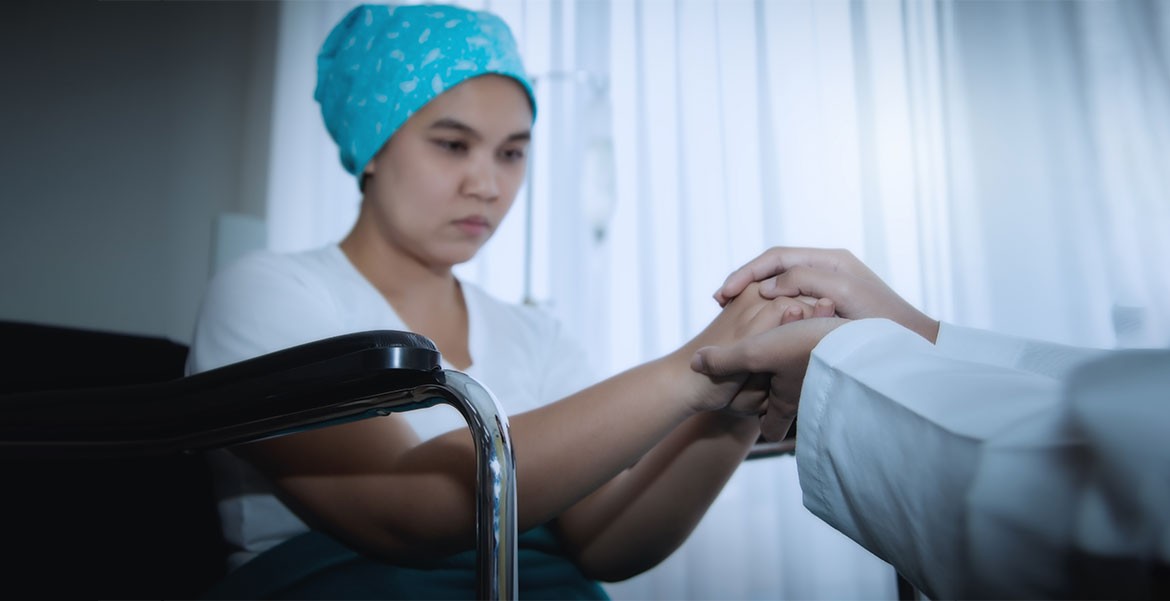Side effects of each treatment and the role of Integrative therapies in your cancer journey
The cancer treatments such as chemotherapy, radiation therapy, immunotherapy etc help in arresting the growth of cancer by destroying the cancer cells, at the same time they harm our healthy cells as well. Hence, the side effects! These side effects can be effectively managed with the help of right nutrition or diet, yoga/ exercise, and mental wellbeing. In short integrative therapy in adjunct to the conventional therapy has proven to show better health outcomes and improved quality of life.
Below mentioned are few types of cancer treatment and their side effects:
1.Surgery- this is the most common and oldest type of cancer treatment available. Surgery works best for solid tumors that are contained in one area. It is a local treatment, meaning that it treats only the part of your body with the cancer.
Complications related to surgery:
● Pain
● Infection
● Fatigue
● Swelling at the site of operation
● Some types of surgery may change how your body uses food. Surgery can also affect eating if you have surgery of the mouth, stomach, intestines, or throat. For example, the surgery performed at the site of your intestines might affect nutrient absorption
In cases like this it is better to talk with your personal nutritionist/ dietitian and figure out the best way out.
2.Radiation therapy
Radiation therapy is a type of cancer treatment that uses beams of intense energy to kill cancer cells. Radiation therapy most often uses X-rays, but protons or other types of energy are also used if required.
Side effects of radiation therapy:
Common side effects:
● Fatigue
● Skin changes
Head and neck
● Dry mouth
● Thickened saliva
● Difficulty swallowing
● Sore throat
● Changes in the way food tastes
● Nausea
● Mouth sores
● Tooth decay
Chest
● Difficulty swallowing
● Cough
● Shortness of breath
Abdomen
● Nausea
● Vomiting
● diarrhea
Pelvis
● Diarrhea,
● Bladder irritation
● Frequent urination
● Sexual dysfunction
3.Chemotherapy
Is the most common type of cancer treatment seen today. It’s a powerful chemical used to kill fast-growing cells in your body. There are different types of chemo drugs available for different types of cancer and your oncologist would be the best person to decide the type and the dosage of the drug. Chemotherapy is often used in combination with other therapies, such as surgery, radiation, or hormone therapy.
Just like other treatments, chemotherapy also induces various side-effects:
Common side effects of chemotherapy drugs include:
● Nausea
● Vomiting
● Diarrhea
● Hair loss
● Loss of appetite
● Fatigue
● Fever
● Mouth sores
● Pain
● Constipation
● Easy bruising
● Bleeding
There’s also the risk of long-lasting effects that may develop even years after treatment, depending on the type of chemotherapy used.
These effects could include damage to the:
● heart
● kidneys
● lungs
● nerves
● reproductive organs
It’s not that everyone who has undergone chemo will end up having long term side-effects. Before beginning the treatment, talk to your doctor about the possible risks and the symptoms you should be aware of.
4.Immunotherapy
Immunotherapy is a type of cancer treatment that boosts the body’s natural defenses to fight cancer. It uses substances made by the body or in a laboratory to improve how your immune system works to find and destroy cancer cells.
Side effects:
Just like other types of cancer treatments, immunotherapy also affects the healthy cells along with cancer cells. Therefore causing symptoms such as:
Some side effects are common with all types of immunotherapy. For instance, you might have skin reactions at the needle site, which include:
● Pain
● Swelling
● Soreness
● Redness
● Itchiness
● Rash
● Fever
● Chills
● Weakness
● Dizziness
● Nausea or vomiting
● Muscle or joint aches
● Fatigue
● Headache
● Trouble breathing
● Low or high blood pressure
So, what is integrative therapy and how can it help with cancer journey?

It’s an approach that includes using non-clinical therapies like nutrition, movement and meditation, mental well-being etc. along with clinical conventional cancer treatments such as chemotherapy, radiation, surgery and others.
These integrative therapies are mainly focused on managing treatment side-effects, improving recovery rates, quality of life and survival, decrease side effects of the conventional therapies that may be toxic. Research has shown, in fact, that such therapies may be a key in helping cancer patients manage the side effects of the disease and its treatment from pain and fatigue to stress, neuropathy and malnutrition.
Sometimes the side effects from the treatment are so extreme, that the treatment needs to be halted for a while until the patient recovers. To help reduce or avoid those interruptions, a growing number of oncologists are turning to an integrative approach to care. This approach involves using supportive care therapies to help cancer patients manage their side effects, while also treating the disease with surgery, chemotherapy, radiation therapy, immunotherapy or other conventional methods.
It also worth noting that these integrative therapies will not only help patient with the physical aspects of the body but also mental health. It helps them in combatting the fear and stay motivated which in turn can help in managing the treatment better.
Unfortunately not every healthcare provider has realized the importance of complementary medicine therapies like nutrition. We believe that there are 4 pillars of health: 1. right nutrition, 2. good quality sleep, 3. physical activity and 4. Mental well- being. These pillars of health combined with conventional treatment will work wonders on the body and recovery.
Perhaps with increasing education, awareness and acceptance by healthcare providers and traditional institutions, integrative modalities could be equally valued between patients and providers. Furthermore, it’s possible that increased availability and utilization of integrative oncology modalities at tertiary hospital sites like hospitals could improve patient satisfaction, quality of life, and other clinical endpoints.
Tags: integrative oncology, cancer, nutrition, physical activity, mental well-being, complementary medicine, chemotherapy, radiation, surgery, non-clinical, clinical, personalized care, Carer, sleep, healthcare providers, quality of life, treatment side-effects, recovery, survival, hospitals, metal wellbeing, better quality of life, right nutrition, immunotherapy, pain, fatigue, neuropathy









